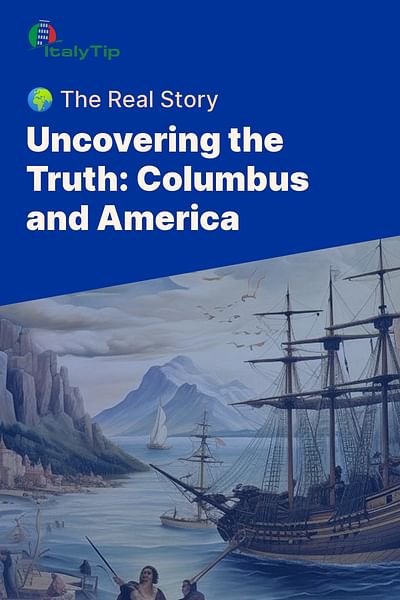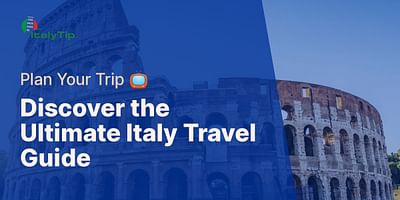Alessandro Romano, a native of Sorrento, is a historian and author. He shares the rich history and culture of Italy with travelers, providing a deeper understanding and appreciation of the country.
Yes and no. Christopher Columbus, the famed Italian explorer, did indeed set foot on the American continent, but labeling his voyage as a 'discovery' is nuanced. Let's delve deeper into this facet of Italian explorers' history and Italy's impact on America.
Unraveling the Truth: Did Columbus, the Italian Explorer, Truly 'Discover' America?
Christopher Columbus, born in Genoa, Italy, embarked on his voyage across the Atlantic in 1492, backed by the Spanish monarchs Ferdinand and Isabella. His primary objective was to find a quicker sea route to Asia, not to discover a new continent. However, he ended up landing in what is now known as the Bahamas, believing he had reached Asia.
To visualize Columbus's journey, let's take a look at the route he took from Spain to the Bahamas.
This map illustrates Columbus's path across the Atlantic, landing in the Bahamas, which he initially believed was Asia.
From a Eurocentric point of view, Columbus's voyage did indeed open up the 'New World' to Europe. However, to term Columbus's arrival in America as a 'discovery' is misleading. The term implies that the land was unknown and uninhabited, which was not the case. Native people had been living in the Americas for thousands of years before Columbus's arrival.
Through the Eyes of the First People: The Native American View on Columbus's Arrival
From the Native American perspective, Columbus's arrival marked the beginning of centuries of displacement, violence, and suffering. Therefore, many people, particularly the indigenous communities, take issue with the term 'discovery' in this context.
Here's an example of how the indigenous communities continue to remember their history and keep their traditions alive.
Such posts serve as a reminder that while the 'discovery' of America brought significant changes, the indigenous communities continue to preserve their heritage and culture.
Setting Sail into History: Columbus's Role in Igniting the Age of Exploration
Columbus's voyages played a significant role in kick-starting the Age of Exploration. His travels paved the way for other European explorers and settlers, leading to profound changes in the world's political and cultural landscape.
The Age of Exploration and Columbus
Test your knowledge about the Age of Exploration and Christopher Columbus's role in it.
Learn more about 🔍 Test Your Knowledge: The Age of Exploration and Columbus or discover other Italy Tip quizzes.
However, it's worth noting that Columbus was not the first European to reach the Americas. That honor goes to the Norse explorer Leif Erikson, who is believed to have landed in present-day Newfoundland, Canada, around 500 years before Columbus.
Comparison of Columbus and Erikson's Voyages
To better understand the voyages of Columbus and Erikson, let's take a look at a comparative table that highlights the key differences and similarities.
| Explorer | Origin | Year of Voyage | Landing Site | Backed By | Impact |
|---|---|---|---|---|---|
| Christopher Columbus | Genoa, Italy | 1492 | The Bahamas | The Spanish Crown | Kick-started the Age of Exploration, led to the colonization of the Americas |
| Leif Erikson | Iceland | Around AD 1000 | Present-day Newfoundland, Canada | His father, Erik the Red | First known European to have set foot on continental North America before Columbus, but his discovery had less historical impact |
As you can see, while both explorers had their own unique journeys and impacts, the fact remains that Erikson reached the Americas before Columbus. However, Columbus's voyage had a more profound impact on world history.
The Ripple Effect: Unpacking the Lasting Impact and Controversial Legacy of Columbus
Regardless of the controversy surrounding his 'discovery,' there's no denying that Columbus's voyages had far-reaching implications. They marked the beginning of sustained European colonization of the Americas, resulting in cultural, biological, and geographical exchanges between the Old World and the New.
Let's take a closer look at the key events that unfolded following Columbus's voyages:
These events illustrate the far-reaching implications of Columbus's voyages, which continue to resonate in our world today.
Today, Columbus remains a figure of significance in both Italian and American history. While some celebrate Columbus Day to honor his achievements, others observe Indigenous Peoples' Day to recognize the native populations affected by European colonization.
Which day do you believe should be nationally recognized?
As the debate continues over the legacy of Columbus, we want to know your thoughts. Should we celebrate Columbus Day, Indigenous Peoples' Day, or both?















